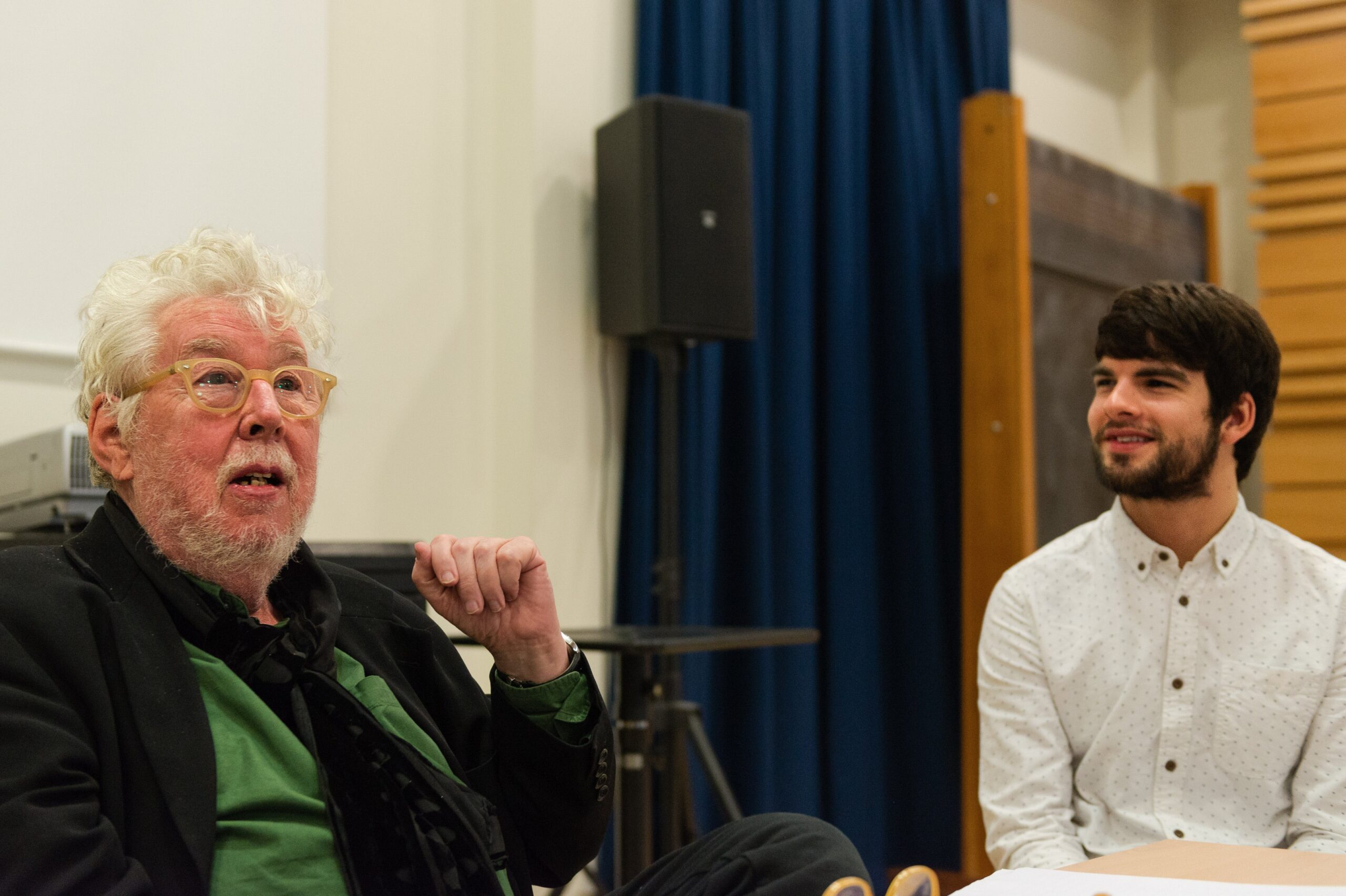
Sir Harrison Birtwistle in a one-to-one session with student composer Daniel Fardon
Photo: Mustafa Beg
An energising effect
Inviting Sir Harrison Birtwistle as composer in residence to a new music festival had the desired effect on the student performers and composers, says Richard Causton.
The University of Cambridge – and King’s College in particular – has a very distinguished track record when it comes to composition (former students include Judith Weir and Thomas Adès). It was clear to me when I started as Music Fellow at King’s that new music should be proudly celebrated – and that composing opportunities for current and future students must be nurtured and made to flourish. I had seen in other institutions I had worked in just what a profoundly energising effect it can have when a famous guest composer is ‘in residence’ for a few days. Students can get a thrill when they have a one-to-one session with a figure whose music they already know and have read about. Young performers rise to the occasion when they rehearse with a real, living composer and can hear how the music should be shaped directly from the person who imagined it in the first place.
During my own adolescence and student years, the living composer whose work made perhaps the biggest impact on me was Harrison Birtwistle. The sheer ambition and scale of his pieces was breathtaking, opening up my eyes to what music might be capable of and what one might hope to do with it. So, much further down the line it was wonderful to be able invite him (in his eightieth year) last November to Cambridge for Secret Theatres: the Music of Harrison Birtwistle: three days of concerts, lectures, film showings and one-to-one sessions with students.
I could never have predicted that Birtwistle might be so very generous with his time, often sitting over a drink with students and discussing composition, the arts, or life in general
One of my principal ideas when putting together the programme was the juxtaposition of work by performers and composers at all stages in their careers. So our concerts featured music by student composers alongside Birtwistle and Alexander Goehr (Emeritus Professor in Music at Cambridge), while the young performers of King’s College Chapel Choir and the University New Music Ensemble rubbed shoulders with the Arditti String Quartet and the Birmingham Contemporary Music Group directed by Oliver Knussen. As one might expect with performers of such calibre, the concerts were superb, but what came as a pleasant surprise was that this really was a residency not only in letter but in spirit too. I could never have predicted that Birtwistle might be so very generous with his time, often sitting over a drink with students and discussing composition, the arts, or life in general.
Apart from the good press coverage, more telling by far from my point of view were some of the comments made by our students, such as “I was honoured to have a work of mine performed and spent the entire weekend perpetually star-struck. It was incredible just to be able to see figures such as Oliver Knussen and Harrison Birtwistle in the flesh”; and “Birtwistle was an incredibly insightful teacher, and in the half an hour I spent with him I learnt more about speech rhythms and their importance in operatic characterisation than I could have imagined possible… he was highly encouraging.”
If these students have been inspired by our festival, and if it encourages them to be artistically ambitious and use their imagination to push their own music beyond what they had thought was possible, then it will have served its purpose.
Richard Causton is Lecturer in Composition at the University of Cambridge and Fellow in Music at King’s College Cambridge.
www.richardcauston.com
Join the Discussion
You must be logged in to post a comment.